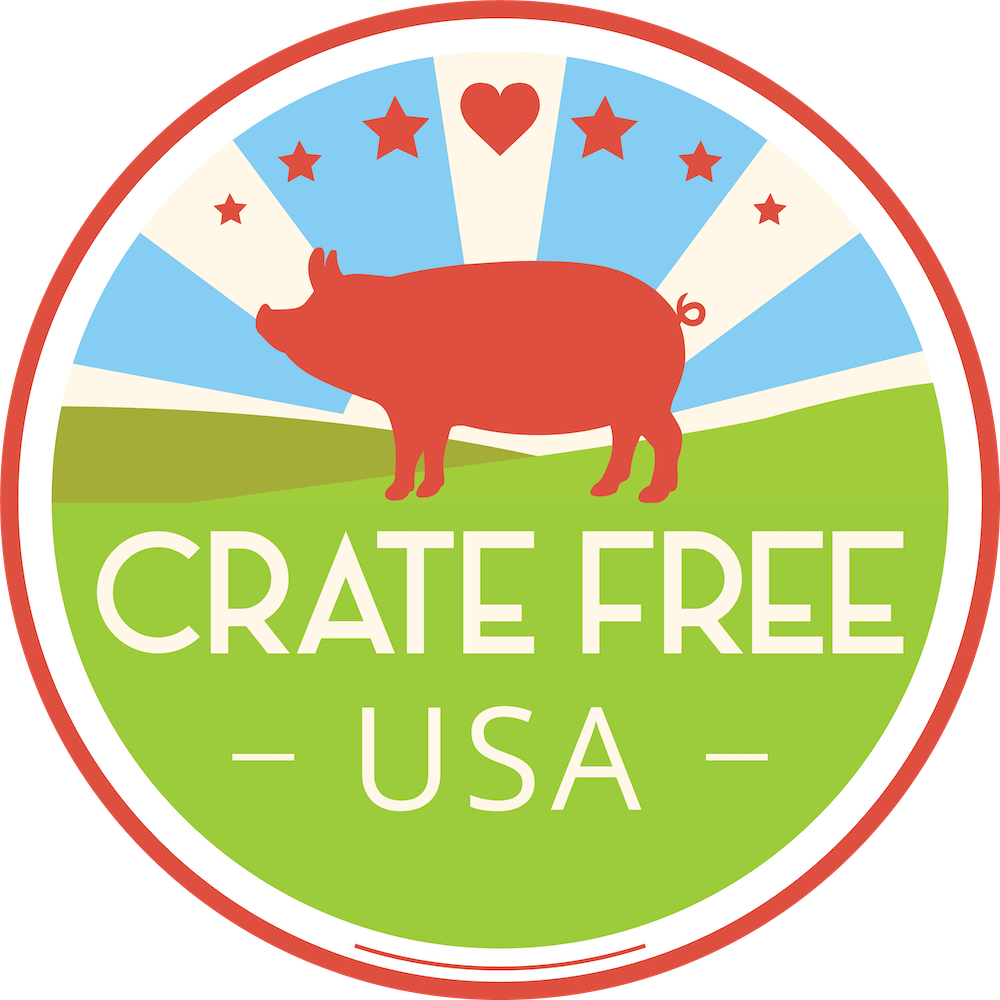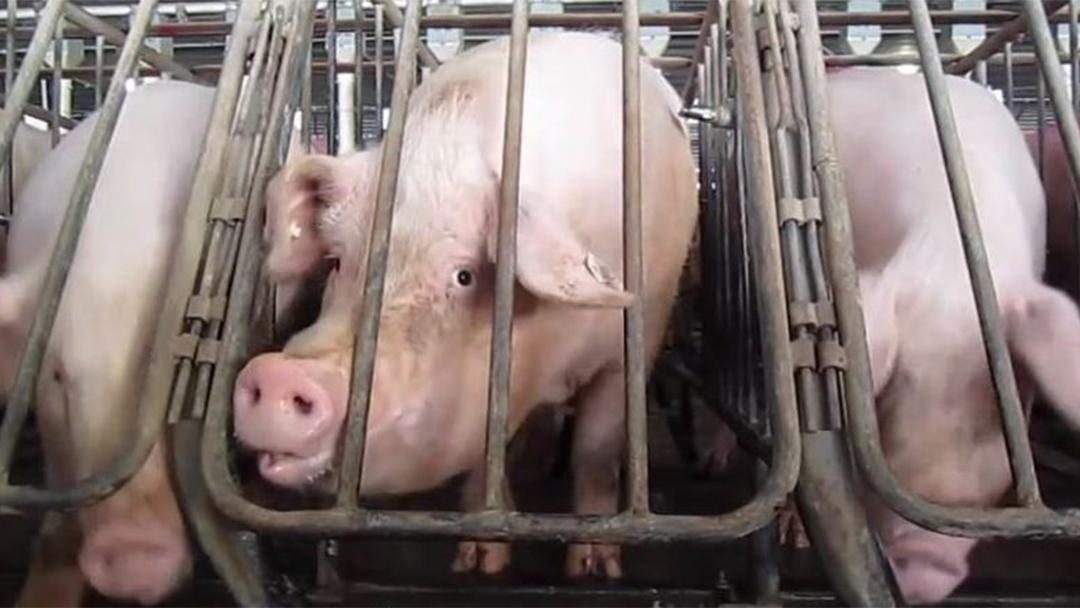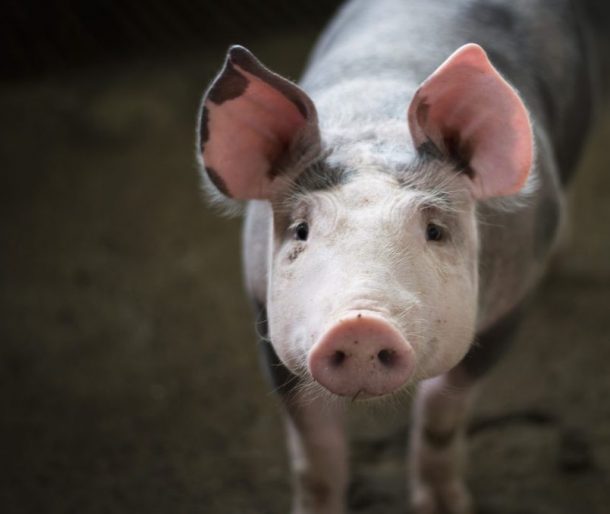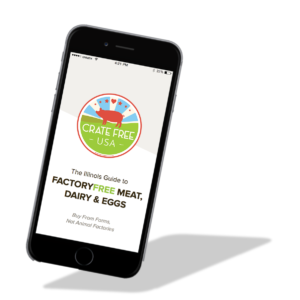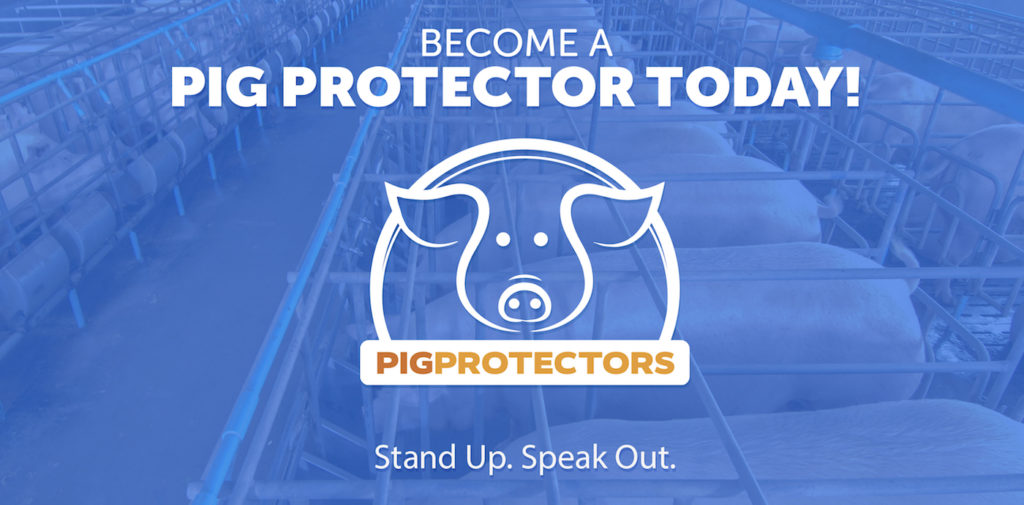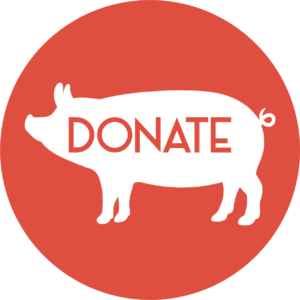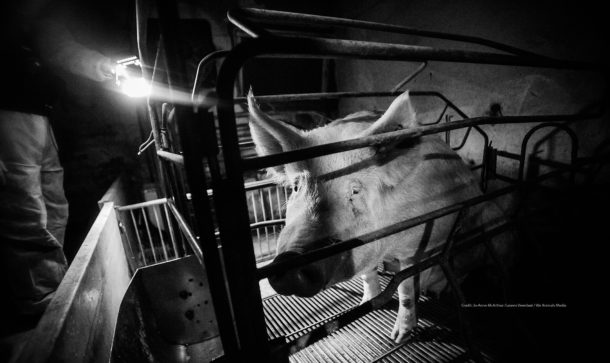Cheap Meat Equals Climate Change
What is the problem with factory farming?
The factory farming industry plays a major role in contributing to the problem of global climate change. This particular issue does not get addressed nearly as much as it should due to the powerful influence that corporations wield, and the billions of dollars they generate. Therefore, most traditional farming has now morphed into agribusiness. Many consumers are still unaware of what factory farming really is and that it creates millions of gallons of animal waste annually, which seeps into our waterways and contributes to poor air quality.
According to data from the US Department of Agriculture (USDA) and the Environmental Protection Agency (EPA), “concentrated animal feeding operations (CAFOs) produce approximately 500 million tons of manure every year, with CAFOs generating 60% of this excrement.”[1] These factory farms pose serious environmental hazards and can also contaminate nearby homes as well as crops with fecal matter and blood residue.
Farm Animal Welfare Means Healthier Humans
The debate about farm animal welfare policy is more than simply an environmental or animal rights issue, it’s a human health issue. Hundreds of animals are kept in such cramped and close quarters that disease flourishes. As a result, animals are force fed antibiotics, which are then passed down to the consumer when they consume that meat or dairy product.
Agricultural scientists have been conducting studies over the years to try and collect data in order to assess the severity of the situation. A recent study published in the Proceedings of the National Academy of Sciences of the United States of America (PNAS) mentions, “farm antibiotic use correlates repeatedly with the rise and spread of associated resistance genes in human pathogens, as well as the direct transfer of antibiotic-resistant bacteria from animals to humans.”[2] This is a deeply disturbing fact that should be shared with consumers so they are informed where their meat comes from.
Cruelty on Farms
Another problem is that basic animal welfare is being ignored, which results in animals such as hogs, broiler chickens, and cattle being abused and denied basic veterinary care. Farmed animals do not qualify for the Animal Welfare Act (AWA) in the United States and have no legal protections—unlike other domesticated animals such as dogs and cats. Therefore, there are rampant cases of cruelty and neglect across the country that occurs behind closed doors. Even though there are current laws in place such as the U.S. Humane Methods of Slaughter Act, it does not truly protect these animals, and even though the U.S. Department of Agriculture has the power to enforce this law it rarely—if ever does so.
The abuse that these farm animals endure is more than physical, as there is emotional and mental stress due to anxiety, boredom, lack of available food and water, and denial of their basic instincts. For instance, chickens are forced to live in small battery cages approximate to the size of a standard piece of paper alongside hundreds of other birds, and broiler chickens are force fed hormones so they can grow larger faster, causing many to become crippled under their own weight often resulting in their death.
Most hogs are still confined in gestation crates, which are roughly the size of 2 ½- 6 ½ feet, where they spend their entire lives and are unable to lie down or move around, often leading them to insanity. There is also pig castration, which is performed by workers instead of trained veterinarians, and without any anesthetic by means of ripping or cutting out the testicles of the young male hogs. Farmed animals are also housed in metal confining areas or feedlots surrounded by their own waste, and constantly breathe in large amounts of ammonia causing additional health issues.
Things only get worse from there, when they are sent to the kill floor where they are usually slaughtered by a bolt gun to the head—which, if not done almost perfectly causes the animal to die a slow painful death. Others have their throats slit, and are then chained by their hooves upside down to have their blood drain into large collection vats.
These animals also never feel the sunlight or touch grass. The business of large-scale agriculture that produces cheap meat is a heinous practice, which is why it is important that we highlight the seedy underbelly of an industry where the focus is on profit instead of the welfare of the animals. At the moment, the situation is bleak unless we continue to act as a voice on their behalf and lobby for federal farm animal protections.
Confusing Labels
The U.S. government has no requirements for terms such as “humane” and “cruelty-free.”
To make matters worse are confusing “humane” labels many consumers see at their local grocery store. These labels often lack transparency and usually don’t hold much merit, as many animals raised for food on smaller farms still get sent to the same slaughterhouses of traditional factory farmed animals. In addition, the U.S. government has no requirements for terms such as “humane” and “cruelty-free”, so unfortunately there is no way to guarantee that these farmed animals were raised with access to pasture or in sanitary conditions unless you visit the farm yourself.
We also must remember that “humane slaughter” is nothing more than a clever marketing ploy, as there is no humane way to kill something that does not want to die.
A Grassroots Solution
In order to alleviate the problem of cruelty and abuse of farmed animals, there must be federal laws that require stringent regulations on large industrial farms, especially those producing mass scale exports of animal agriculture. In the mean time, individual states leading the way for farm animal welfare legislation include but are not limited to California, Illinois, Oregon, and Massachusetts which have taken it upon themselves to create a grassroots movement spearheaded by non-profit organizations like Crate Free USA and the Humane Society of the US, in order to improve conditions for farm animals, push for legislation aimed at banning gestation crates and battery cages, as well as spreading awareness and educating consumers.
While we may have a long way to go before farmed animals are granted the protections they deserve, rest assured that those who advocate on behalf of these voiceless creatures will not relent until farm animal cruelty is stopped.
Will you help us with this important fight? Please sign up to volunteer here. Or make a donation today.
Author Bio
Rachel Wales grew up on a farm turned rescue in Barrington, Illinois where she first developed her passion for all things animal related. She resides in the Southwest suburbs of Chicago with her husband and rescue dog Ziggy. Rachel currently serves as a Worth Township Committeewoman, and is an environmental educator. In her spare time she volunteers as a blogger for Crate Free USA and the Special Olympics. She is currently on the ballot as a Green Party candidate for the Metropolitan Water Reclamation District of Greater Chicago Commissioner for the upcoming general election in 2018.
[1] “Environmental Integrity Project.”Environmental Integrity Project. N.p., 2013. Web. 21 Mar. 2013. <http://www.environmentalintegrity.org/>.
[2] Zhu, Y., Johnson, T. A., Su, J., Qiao, M., Guo, G., Stedtfeld, R. D., . . . Tiedje, J. M. (2013). Diverse and abundant antibiotic resistance genes in Chinese swine farms. Proceedings of the National Academy of Sciences, 110(9), 3435-3440. doi:10.1073/pnas.1222743110
